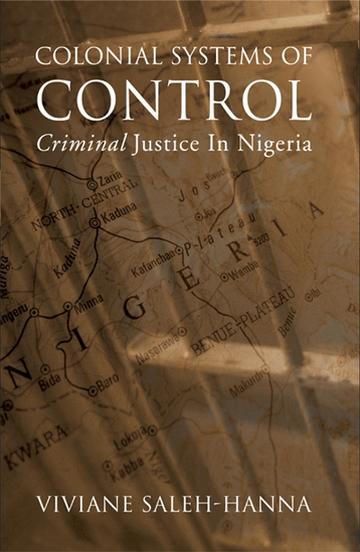Viviane Saleh-Hanna
Chris Affor
Uju Agomoh
Biko Agozino
Clever Akporherhe
Sylvester Monday Anagaba wrote “The System I Have Come to Know” and “Man’s Inhumanity to Man” while serving time on awaiting-trial holding charges in Kirikiri maximum security prison in Lagos State, Nigeria. He passed away in 2004 in the maximum security prison hospital. Prisoners have confirmed that he was told before he died that he had earlier been diagnosed with AIDS. Prison officials failed to inform him of that diagnosis until shortly before his death. He was never provided with any medication.
Sylvester Monday Anagaba wrote “The System I Have Come to Know” and “Man’s Inhumanity to Man” while serving time on awaiting-trial holding charges in Kirikiri maximum security prison in Lagos State, Nigeria. He passed away in 2004 in the maximum security prison hospital. Prisoners have confirmed that he was told before he died that he had earlier been diagnosed with AIDS. Prison officials failed to inform him of that diagnosis until shortly before his death. He was never provided with any medication.
Sylvester Monday Anagaba wrote “The System I Have Come to Know” and “Man’s Inhumanity to Man” while serving time on awaiting-trial holding charges in Kirikiri maximum security prison in Lagos State, Nigeria. He passed away in 2004 in the maximum security prison hospital. Prisoners have confirmed that he was told before he died that he had earlier been diagnosed with AIDS. Prison officials failed to inform him of that diagnosis until shortly before his death. He was never provided with any medication.
Sylvester Monday Anagaba wrote “The System I Have Come to Know” and “Man’s Inhumanity to Man” while serving time on awaiting-trial holding charges in Kirikiri maximum security prison in Lagos State, Nigeria. He passed away in 2004 in the maximum security prison hospital. Prisoners have confirmed that he was told before he died that he had earlier been diagnosed with AIDS. Prison officials failed to inform him of that diagnosis until shortly before his death. He was never provided with any medication.
Sylvester Monday Anagaba wrote “The System I Have Come to Know” and “Man’s Inhumanity to Man” while serving time on awaiting-trial holding charges in Kirikiri maximum security prison in Lagos State, Nigeria. He passed away in 2004 in the maximum security prison hospital. Prisoners have confirmed that he was told before he died that he had earlier been diagnosed with AIDS. Prison officials failed to inform him of that diagnosis until shortly before his death. He was never provided with any medication.
Sylvester Monday Anagaba wrote “The System I Have Come to Know” and “Man’s Inhumanity to Man” while serving time on awaiting-trial holding charges in Kirikiri maximum security prison in Lagos State, Nigeria. He passed away in 2004 in the maximum security prison hospital. Prisoners have confirmed that he was told before he died that he had earlier been diagnosed with AIDS. Prison officials failed to inform him of that diagnosis until shortly before his death. He was never provided with any medication.
Sylvester Monday Anagaba wrote “The System I Have Come to Know” and “Man’s Inhumanity to Man” while serving time on awaiting-trial holding charges in Kirikiri maximum security prison in Lagos State, Nigeria. He passed away in 2004 in the maximum security prison hospital. Prisoners have confirmed that he was told before he died that he had earlier been diagnosed with AIDS. Prison officials failed to inform him of that diagnosis until shortly before his death. He was never provided with any medication.
Sylvester Monday Anagaba wrote “The System I Have Come to Know” and “Man’s Inhumanity to Man” while serving time on awaiting-trial holding charges in Kirikiri maximum security prison in Lagos State, Nigeria. He passed away in 2004 in the maximum security prison hospital. Prisoners have confirmed that he was told before he died that he had earlier been diagnosed with AIDS. Prison officials failed to inform him of that diagnosis until shortly before his death. He was never provided with any medication.



